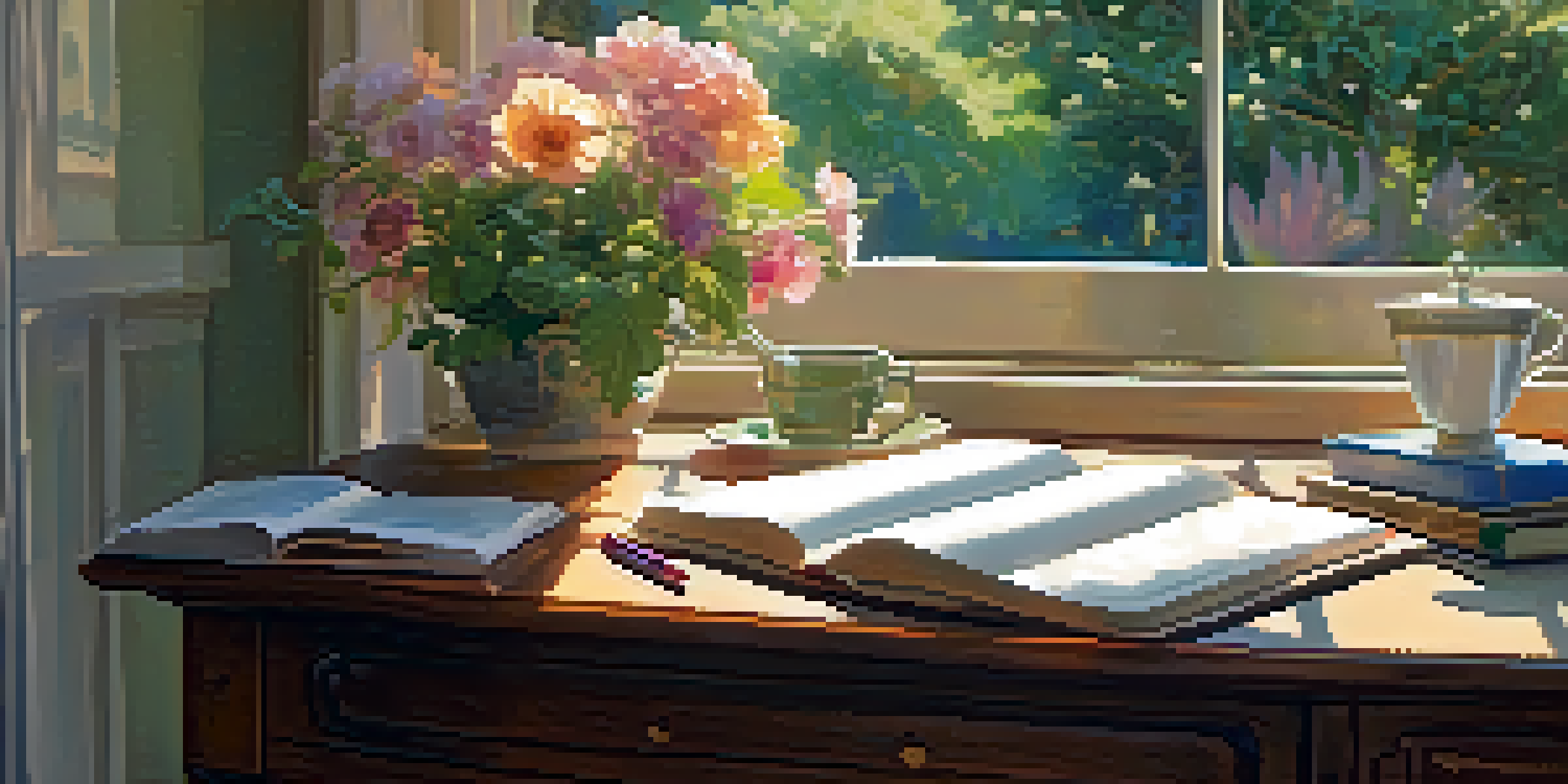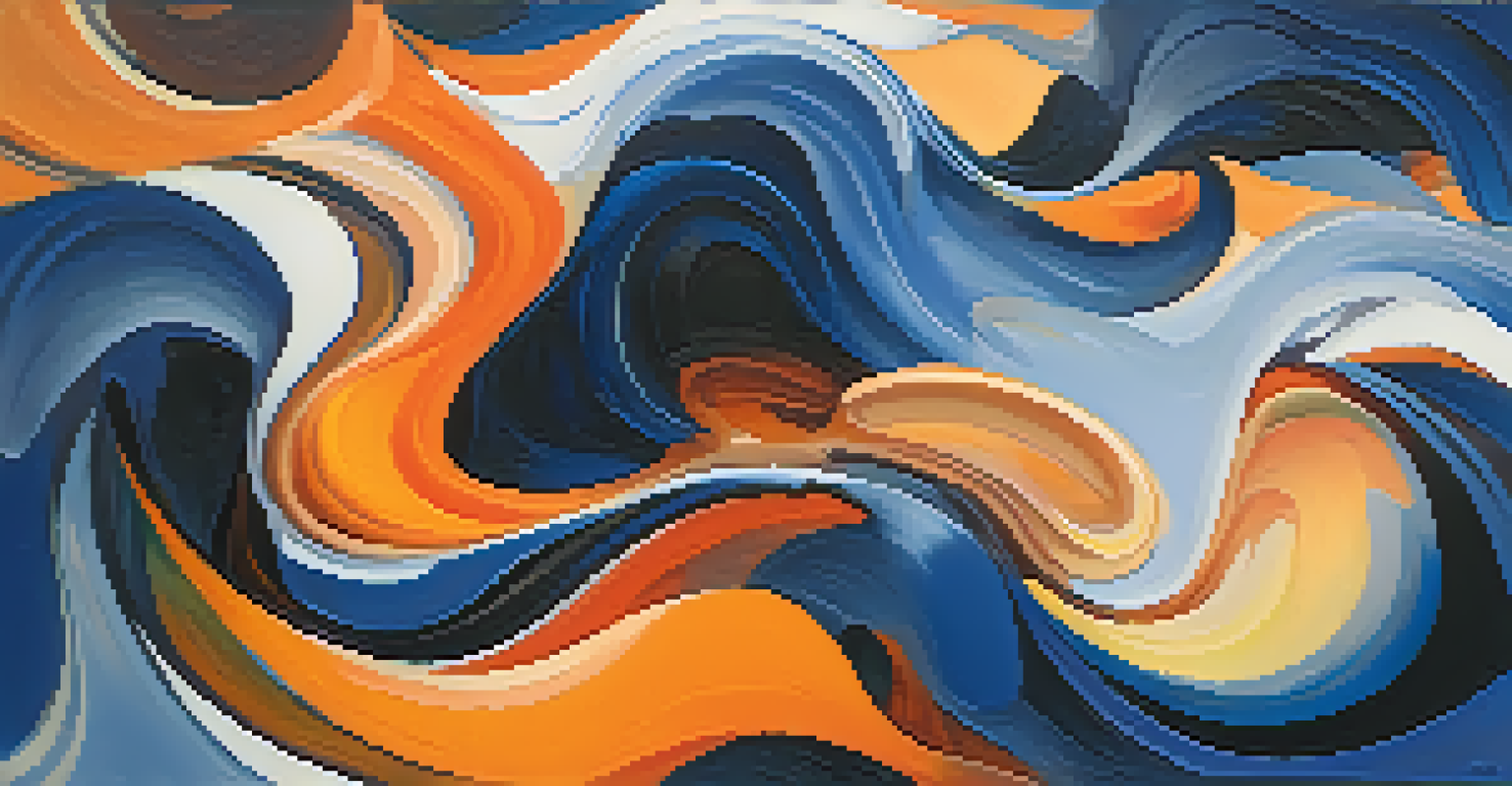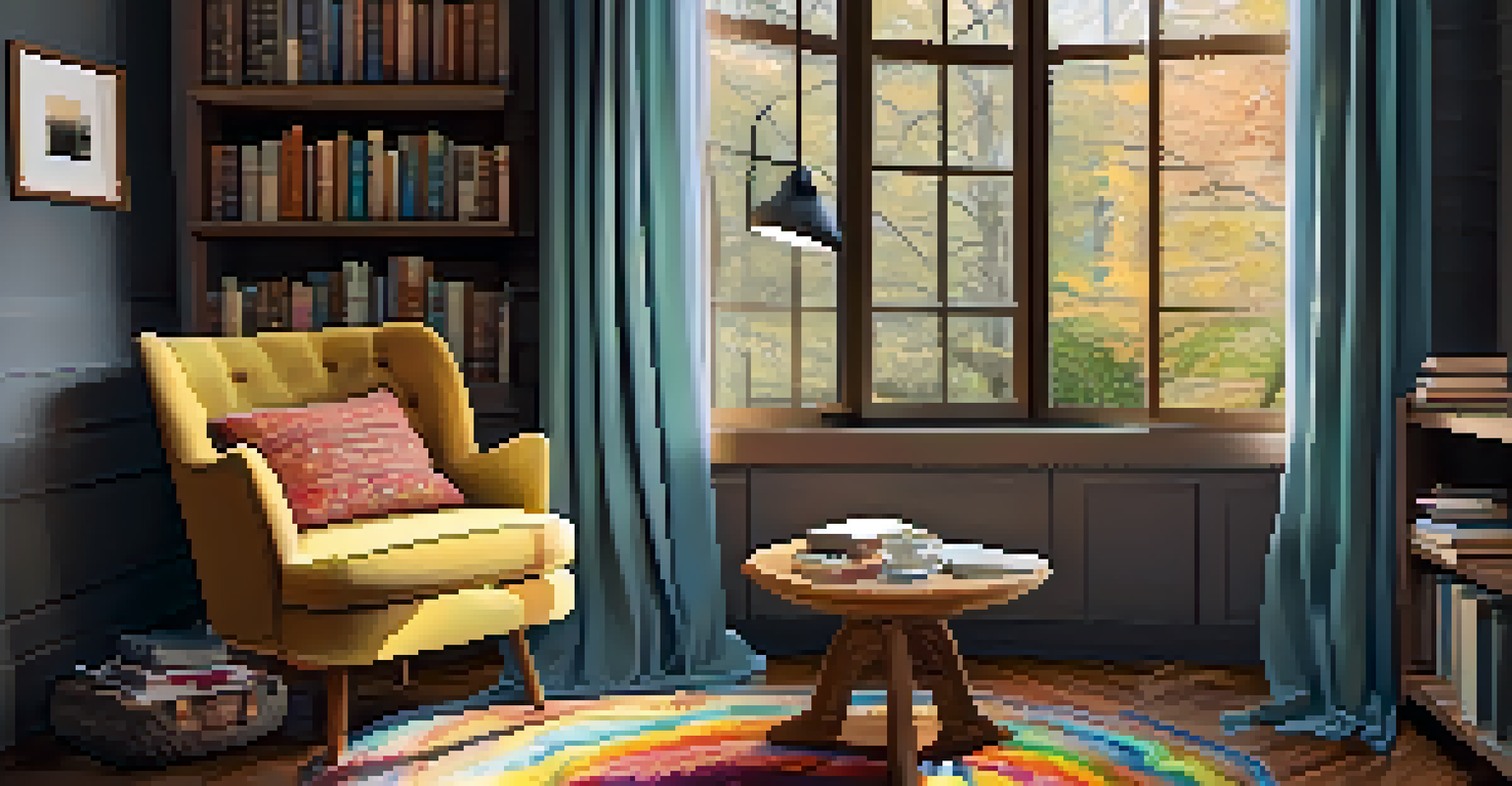Hallucinogens and the Writer's Block: An Exploration

Understanding Writer's Block: A Common Creative Struggle
Writer's block is a frustrating condition that many authors face at some point. It can feel like staring at a blank page, where ideas seem to evaporate before they even begin to form. This mental barrier can stem from various sources, including stress, fear of judgment, or even perfectionism. Ultimately, it creates a disconnect between the writer and their creativity, leaving them feeling stuck and overwhelmed.
The greatest enemy of creativity is good sense.
It's important to realize that writer's block isn't just about lacking ideas; it’s also an emotional state. Just as athletes can experience a slump, writers can find themselves in a rut where motivation and inspiration seem out of reach. This phenomenon can lead to feelings of inadequacy and frustration, making the act of writing feel like an uphill battle. Understanding the root causes is crucial for overcoming this hurdle.
For many, finding a way to break through this barrier is essential. Some writers find success through routine, while others rely on inspiration from external sources. However, some creatives have turned to hallucinogens in search of an unconventional solution. This brings us to an intriguing intersection of creativity and altered states of consciousness.
Hallucinogens: What Are They and How Do They Work?
Hallucinogens are substances that alter perception, mood, and cognitive processes. Common examples include psilocybin (found in magic mushrooms), LSD, and mescaline. These compounds can create vivid alterations in sensory experiences, allowing users to perceive the world in a radically different way. But how do they work? At their core, hallucinogens interact with neurotransmitters in the brain, particularly serotonin, which plays a significant role in mood and perception.

The effects of hallucinogens can vary widely, from enhanced sensory experiences to profound shifts in thinking. Some users report feelings of interconnectedness and creativity that can be deeply inspiring. This has led many artists and writers to explore these substances as a means of breaking through creative blockages. However, it’s essential to approach this topic with caution, as the effects can be unpredictable and not everyone responds positively.
Understanding Writer's Block
Writer's block is an emotional state that can stem from stress, fear of judgment, or perfectionism, disconnecting writers from their creativity.
In recent years, research has begun to explore the potential therapeutic benefits of hallucinogens, particularly in treating mental health issues like depression and anxiety. This has sparked interest in their possible applications for enhancing creativity and breaking through writer's block. But while the potential is exciting, it also raises important questions about safety, legality, and the ethical considerations surrounding their use.
The Potential of Hallucinogens in Unlocking Creativity
Many artists and writers have turned to hallucinogens in hopes of unlocking their creative potential. Anecdotal evidence suggests that these substances can lead to fresh perspectives, allowing individuals to think outside traditional boundaries. This can result in a flow of ideas that might otherwise remain untapped, offering a unique way to push through creative stagnation. However, it's crucial to remember that these experiences can vary greatly from person to person.
You can’t use up creativity. The more you use, the more you have.
For example, famous figures like Aldous Huxley and Hunter S. Thompson have spoken about the role of hallucinogens in their creative processes. They reported that these substances helped them tap into deeper layers of thought and experience, fostering creativity in novel ways. While these stories are compelling, they highlight the subjective nature of creativity—what works for one person may not work for another.
Moreover, the relationship between hallucinogens and creativity is still not fully understood. Some researchers argue that the altered states induced by these substances can lead to more divergent thinking, which is crucial for creative problem-solving. However, this area of study is still evolving, and more scientific research is needed to establish concrete findings on how hallucinogens might aid in overcoming writer's block.
Risks and Considerations of Using Hallucinogens
While the idea of using hallucinogens to enhance creativity can be tempting, it’s essential to weigh the risks involved. These substances can lead to unpredictable psychological effects, including anxiety, paranoia, or even triggering latent mental health issues. For some, the experience can be overwhelming and lead to negative outcomes rather than the creative breakthroughs they sought. Therefore, caution is paramount when considering their use.
Additionally, the legality of hallucinogens varies significantly across different regions, which can add another layer of complexity. In some places, they remain classified as illegal substances, while others have begun to decriminalize or even regulate them for therapeutic use. This legal landscape can affect access and safety, making it crucial for writers to stay informed about the laws in their area before experimenting.
Hallucinogens and Creativity
Many artists explore hallucinogens for creative breakthroughs, though experiences can vary widely and carry risks.
Moreover, using hallucinogens should never be seen as a substitute for developing healthy creative habits. While they may offer a temporary solution to writer's block, cultivating a consistent writing practice, seeking feedback, and engaging in creative exercises can provide more sustainable results. Balancing exploration with responsibility is key to navigating this complex relationship.
Exploring Alternatives to Hallucinogens for Creativity
If hallucinogens seem too risky or not appealing, there are numerous alternative methods to stimulate creativity. Techniques such as regular meditation, engaging in physical activities, or even trying out new hobbies can provide fresh insights and perspectives. These practices often help clear mental clutter, allowing writers to reconnect with their creative flow without the unpredictability of substances. Each writer can find what resonates best with them.
Another alternative is to embrace collaboration. Working with other creatives can spark new ideas and provide motivation. Brainstorming sessions, writing groups, or workshops can create an environment where creativity thrives naturally. Sometimes, just sharing the struggle with others can be enough to reinvigorate the writing process.
Additionally, exploring different genres, styles, or mediums can also rejuvenate creativity. For example, a poet might try their hand at short stories, or a novelist might experiment with screenwriting. These shifts can help writers break free from their usual patterns and rediscover their passion for storytelling without the need for external substances.
Personal Experiences: Writers on Hallucinogens and Creativity
Many writers have shared personal stories about their experiences with hallucinogens and creativity. Some describe profound moments of insight and inspiration that they attribute to their use of these substances. For instance, they might recount vivid imagery and unique connections that emerged during their experiences, which later influenced their writing. Such testimonials can be captivating and provide a glimpse into the potential creative benefits.
However, it’s essential to approach these stories with a critical eye. Personal narratives often highlight the highs, but they may gloss over the lows or the risks involved. Writers who have experimented with hallucinogens may also speak about the darker aspects of their experiences, such as confusion or distress that followed. These contrasting accounts emphasize the subjective nature of creativity and the unpredictability of using mind-altering substances.
Alternatives to Enhance Creativity
Writers can stimulate creativity through safe alternatives like meditation, collaboration, and exploring new genres.
Ultimately, personal experiences with hallucinogens can serve as valuable insights, but they should not be seen as prescriptions for all writers. Each individual's journey with creativity is unique, and what inspires one person may not resonate with another. The key is to remain open to exploration while prioritizing personal well-being and safety.
Final Thoughts: Balancing Exploration with Responsibility
As we explore the connection between hallucinogens and writer's block, it's essential to maintain a balanced perspective. While there may be potential for these substances to enhance creativity, the risks and ethical considerations cannot be overlooked. Writers must navigate this territory with mindfulness, ensuring they prioritize their mental health and legal responsibilities. Creativity can flourish in many forms, and a holistic approach is often the most effective.
Moreover, the creative process is inherently personal, and what works for one writer may not work for another. Embracing a variety of strategies—whether through hallucinogens or grounded practices—can help individuals discover what ignites their creativity most effectively. It's about finding a path that resonates with one’s unique voice and experience.

In conclusion, while the allure of hallucinogens may be tempting for those facing writer's block, it's essential to weigh the potential benefits against the risks. By fostering creativity through safe and healthy methods, writers can cultivate a thriving practice that allows their stories to flow freely, with or without the influence of substances.